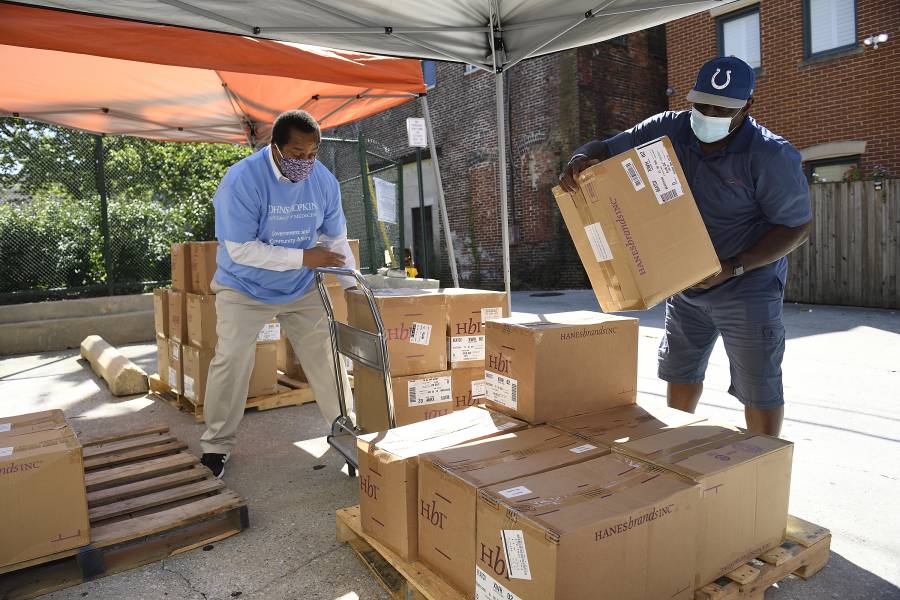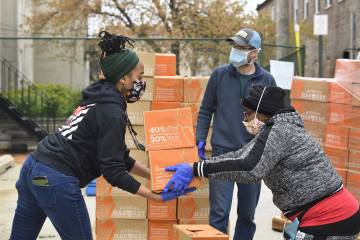- Name
- Jill Rosen
- jrosen@jhu.edu
- Office phone
- 443-997-9906
- Cell phone
- 443-547-8805
With cases of COVID-19 rising in Baltimore City and the recently expanded state mandate for mask use, it's critical that city residents have access to reusable, washable masks. To help meet that need, Johns Hopkins University and Medicine partnered last week with The Door and The Mix Churches to distribute 85,000 reusable masks to more than 50 community groups, neighborhood associations, and faith-based institutions.
The masks were donated by the U.S. Department of Health and Human Services, Office of Preparedness and Response, and are 100% cotton, washable, and reusable up to 15 times. Cotton masks have been shown to reduce the spread of droplets from the mouth or nose that may contain virus, according to the U.S. Centers for Disease Control and Prevention. The CDC recommends everyone over age 2 wear a mask while in public places, especially when social distancing is difficult to maintain, and note that surgical masks and N95 respirators are critical supplies that should be reserved for health care workers and other first responders. The distributed masks were packaged in sets of five.
"Washing your hands, social distancing, and wearing a mask are three of the primary ways to stay safe," Michael Preston, director of community affairs for Johns Hopkins, told WMAR Baltimore. "In addition to giving out the masks today, we also have health information that we're sharing in English and Spanish for our community."
More than 50 Baltimore community groups received masks, including neighborhood associations and organizations such as BUILD, the NAACP, Central Sol, and Baltimore Urban League. These organizations will in turn distribute masks to members of the community. Masks were also distributed through Johns Hopkins' Food Access Initiative, which, since April, has provided emergency food assistance to thousands of East Baltimore families impacted by COVID-19. Families will be able to pick up masks when they collect their weekly food box.
Posted in University News, Community
Tagged community, coronavirus, covid-19









